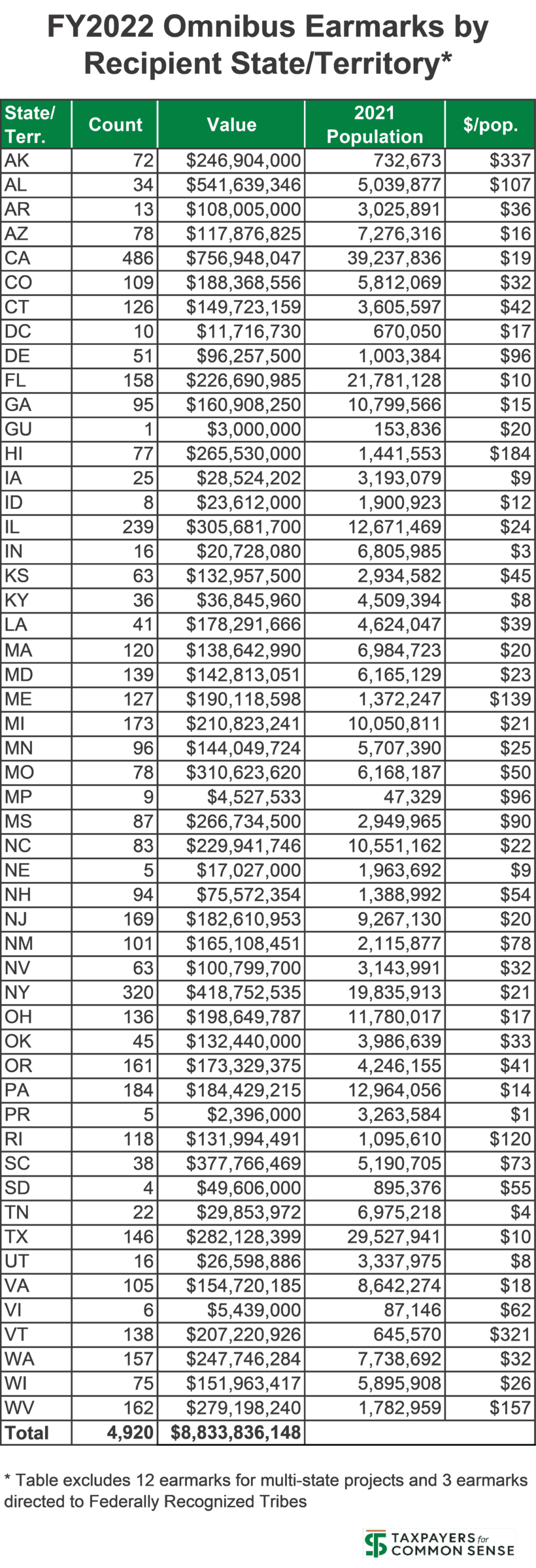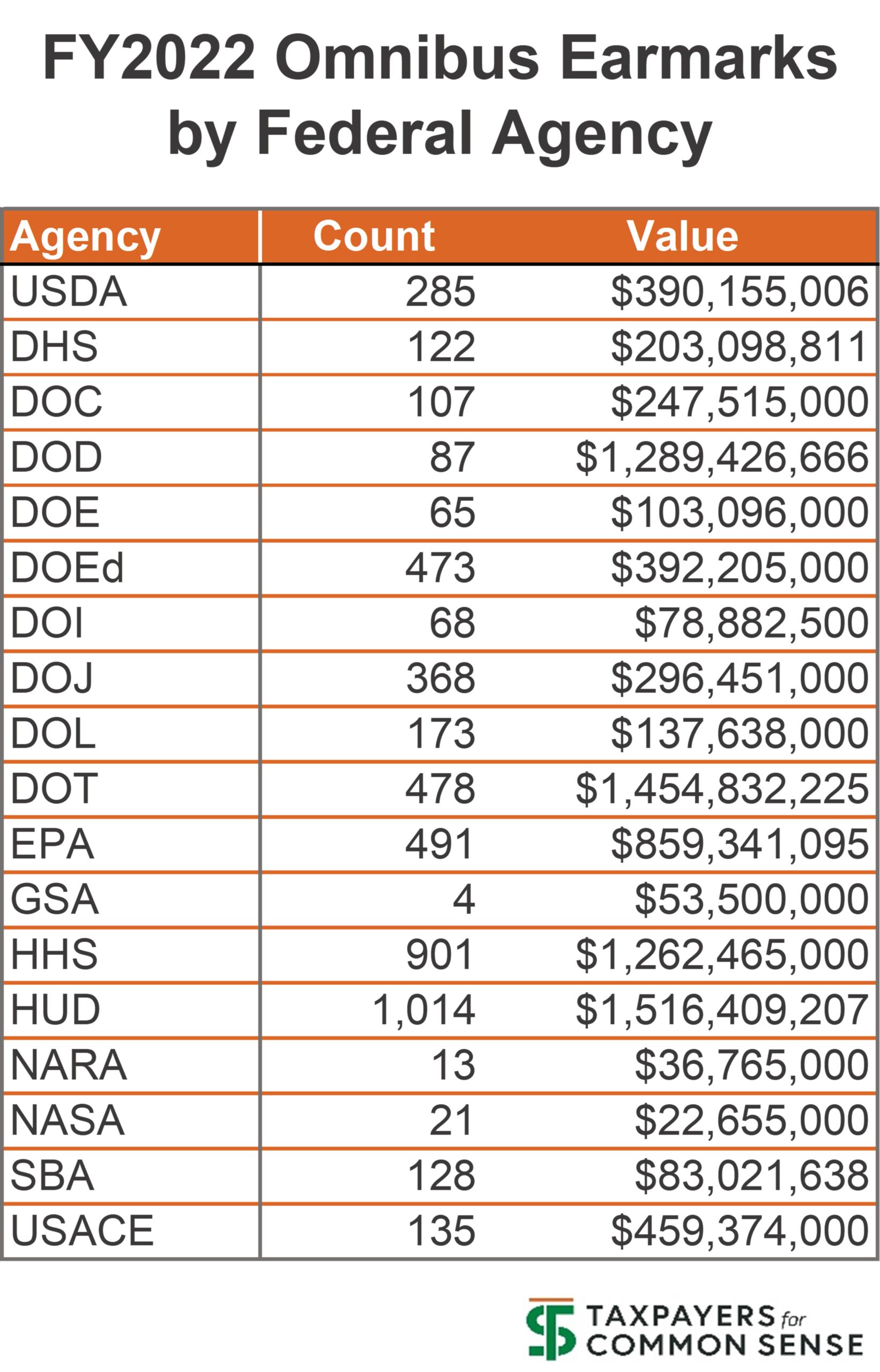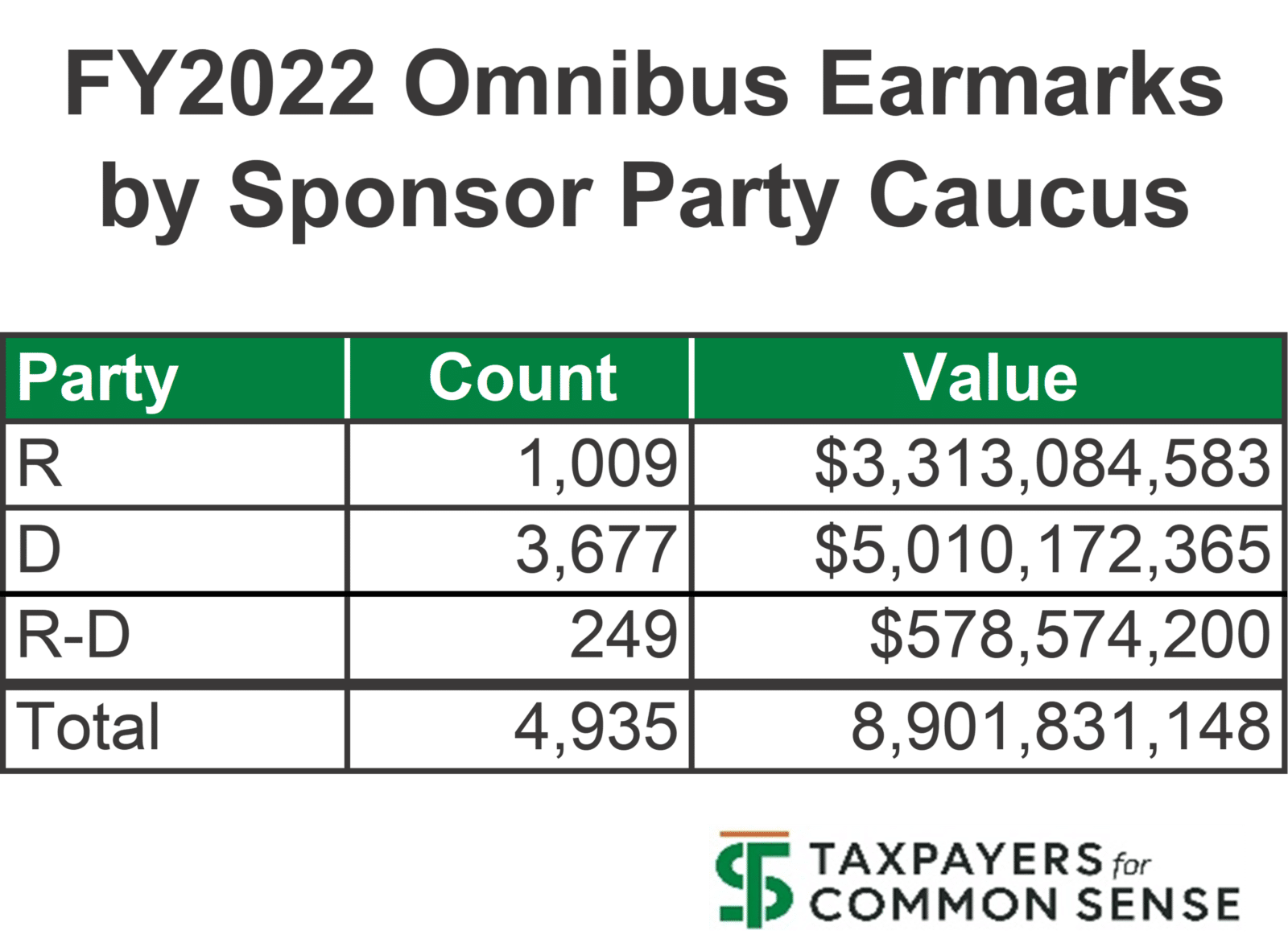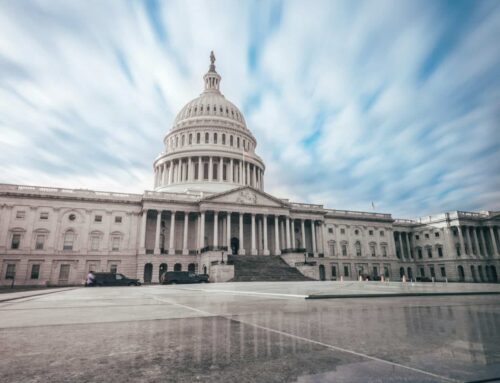The Fiscal Year (FY) 2022 omnibus spending bill marked the return of earmarks after a decade-plus hiatus. Renamed “Community Project Funding,” the practice of Members of Congress earmarking funds to specific parochial projects continues to be a source of friction and debate. The following tables tabulate the earmark/community project funding items Congress disclosed as being included with H.R. 2471.
The earmarks in these tables include only the items Congress disclosed as Community Project Funding. These 4,975 earmarks provided funding totaling $9.1 billion. Just as in the years before the earmark moratorium was put in place in FY2011, there are likely a number of items that meet the TCS/common sense definition of an earmark that Congress does not identify as such. These are not yet included in these tables.
For more information on earmarks, feel free to contact us. Any use of these tables or figures derived from them must comply with the terms of use listed below.
For data from previous fiscal years and further resources on TCS methodology, visit our Earmark Database page for FY2008-2010 earmarks.
Summary Tables – Note
Please read the notes associated with each of the summary tables below. All summary table totals exclude “Presidential Earmarks,” consistent with TCS methodology for earmark tabulation in previous years. These are projects for which federal agencies had requested funding in the FY2022 presidential budget request before lawmakers also disclosed directing funds to them. The final amount provided in the FY 2022 omnibus for these projects was variably less than, the same as, or greater than the amount originally requested by the federal agency, rendering it difficult to consistently attribute earmark value to lawmakers. The 40 Presidential Earmarks all funded water projects carried out by the U.S. Army Corps of Engineers or the Bureau of Reclamation. Combined, they received $786.8 million in funding in the final bill.
Totals by Recipient State/Territory
 The numbers and values of earmarks listed for the states and territories are additive, i.e. no earmark is counted twice. In addition to Presidential Earmarks, the totals also exclude 12 earmarks for projects that stretched across state lines, as well as three earmarks directed to Federally Recognized Tribes.
The numbers and values of earmarks listed for the states and territories are additive, i.e. no earmark is counted twice. In addition to Presidential Earmarks, the totals also exclude 12 earmarks for projects that stretched across state lines, as well as three earmarks directed to Federally Recognized Tribes.
Totals by Federal Agency
 The table omits two earmarks that provide $15 million directly to two institutes in Vermont without any federal agency intermediary.
The table omits two earmarks that provide $15 million directly to two institutes in Vermont without any federal agency intermediary.
Totals by Party Caucus
 For the sake of simplicity, earmarks sponsored by independent Members of Congress are considered sponsored by the party with which the members caucus. An earmark is counted as bipartisan if at least one member from each party caucus sponsors it regardless of the sponsors’ chamber.
For the sake of simplicity, earmarks sponsored by independent Members of Congress are considered sponsored by the party with which the members caucus. An earmark is counted as bipartisan if at least one member from each party caucus sponsors it regardless of the sponsors’ chamber.
Totals by Senate Sponsor
 For earmarks sponsored by multiple senators, each senator is attributed the full value of the earmark. Totals, therefore, are not additive. E.g.) adding the total value of earmarks sponsored by Senators Wyden and Merkley of Oregon might lead to the mistaken conclusion that Colorado projects received $317 million in earmarks funding, when in fact they received just $173 million. The difference results from double counting earmarks that were sponsored by both Senators.
For earmarks sponsored by multiple senators, each senator is attributed the full value of the earmark. Totals, therefore, are not additive. E.g.) adding the total value of earmarks sponsored by Senators Wyden and Merkley of Oregon might lead to the mistaken conclusion that Colorado projects received $317 million in earmarks funding, when in fact they received just $173 million. The difference results from double counting earmarks that were sponsored by both Senators.
Totals by House Sponsor
For earmarks sponsored by multiple Members of the House, each Member is attributed the full value of the earmark. Totals, therefore, are not additive. (See note above for Totals by Senate Sponsor for explanation.)
Names of House sponsors were standardized to ease calculation of totals and may differ slightly from official listings elsewhere. Regrettably, this standardization resulted in the omission of accents in members’ names. Please see House.gov for the proper spelling of all member names.
Terms of Use
Because all of the data we offer is public information, we ask that all users agree to these basic terms of use, that:
- information provided by TCS in whatever form is meant for research, educational, or journalistic purposes only;
- TCS Data shall not be used for commercial purposes, to solicit contributions, or sold to third-parties;
- and that appropriate credit will be given to TCS for all reports, articles, mashups, or other use of our data, including a link back to this page for all items published online.















